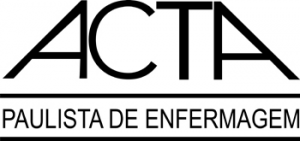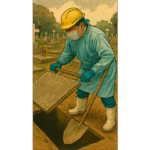By Monica Taminato, Nurse, PhD, Universidade Federal de São Paulo (UNIFESP), São Paulo, SP; and Márcio Luís Duarte, Doctor, PhD student in Evidence-based Health Care, Universidade Federal de São Paulo (UNIFESP), Santos, SP, Brazil
A study published published in Acta Paulista de Enfermagem (vol. 33) by a research group on evidence based medicine and epidemiology, systematic review and health policy of the Federal University of Sao Paulo – UNIFESP. The objective of the study titled “Homemade cloth face masks as a barrier against respiratory droplets – systematic review” was to identify and evaluate best scientific evidences available on efficacy and safety of wearing fabric masks to the community.
A number of databases including Cochrane, PubMed, EMBASE and Lilacs were searched for the best evidences on the topic. We selected all articles that goal was to determine the efficacy and safety of masks as a protective measure against viral transmission, as well as laboratorial studies that evaluate masks as droplet barriers. Seven laboratory studies that evaluated different fabrics in blocking droplets and one literature review composed the sample of the study. The search analyzed quality of articles on the use of fabric masks by population associated with respiratory etiquette and hand hygiene measures. Of studies evaluated and those excluded because involved surgical masks, all demonstrated positive impact on reducing human-to-human transmission among family members and communities.
Studies highlight the importance of wear reusable fabric mask as a preventive measure for symptomatic individuals, caregivers and people living in houses with many individuals, as well as people commuting and places with a large concentration of people, such as public transportation. Wearing face masks according to evaluated studies is a safe alternative considering challenges in public health related to social issues on plan a stepwise return to activities.
Cloth face mask prevents contamination by bacteria and viruses, although with less efficiency compared with surgical masks and N95 respirators. However, some fabric combinations showed a quite similar efficiency. The advice on the use of face mask by the population is based on previous experience with respiratory syndromes, especially in contexts of low – and medium – income. For this reason, the use of masks and maximum compliance with hygiene measures especially hand washing, disinfection of high-touch surfaces, cough etiquette, and avoid touching face are efficient measures to prevent transmission of COVID-19. Cloth face mask wearing is advice in a pandemic and emerging infectious disease. The assessment of fabrics revealed that a mask with at least two layers 600 TPI cotton presents good efficiency to protect wearers against bacteria and viruses.
To read the article, visit
TAMINATO, M., et al. Homemade cloth face masks as a barrier against respiratory droplets – systematic review. Acta paul. enferm. [online]. 2020, vol. 33, eAPE20200103, ISSN: 1982-0194 [viewed 24 June 2020]. DOI: 10.37689/acta-ape/2020ar0103. Available from: http://ref.scielo.org/zsbysx
Acta Paulista de Enfermagem – APE: <http://www.scielo.br/ape>
Como citar este post [ISO 690/2010]:

















Recent Comments